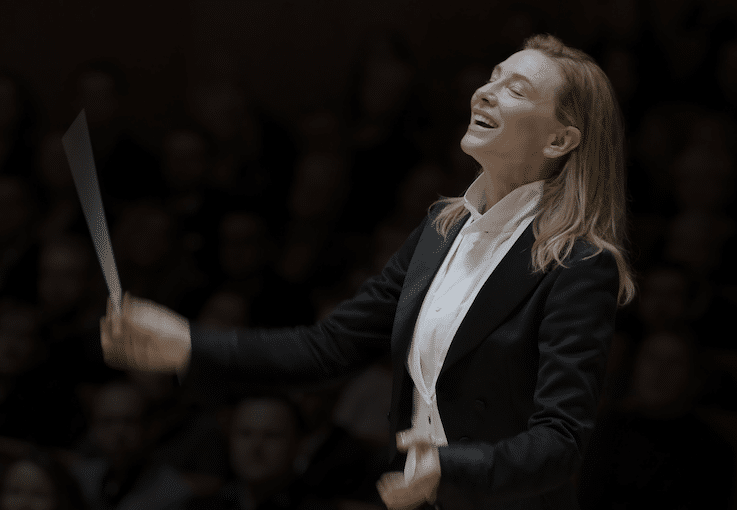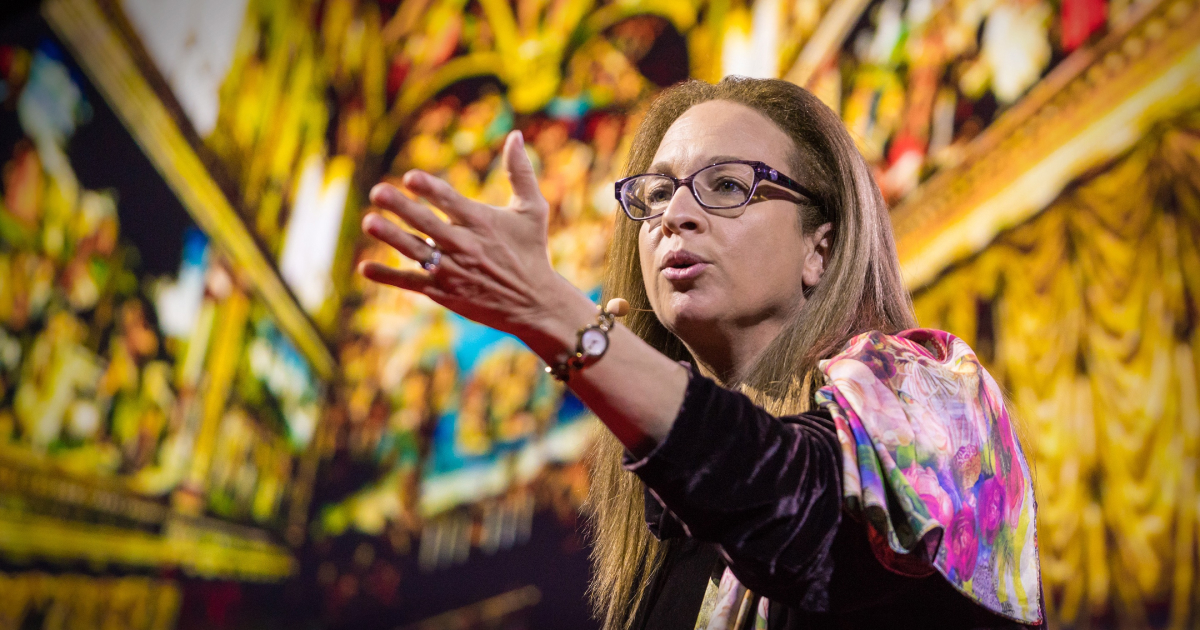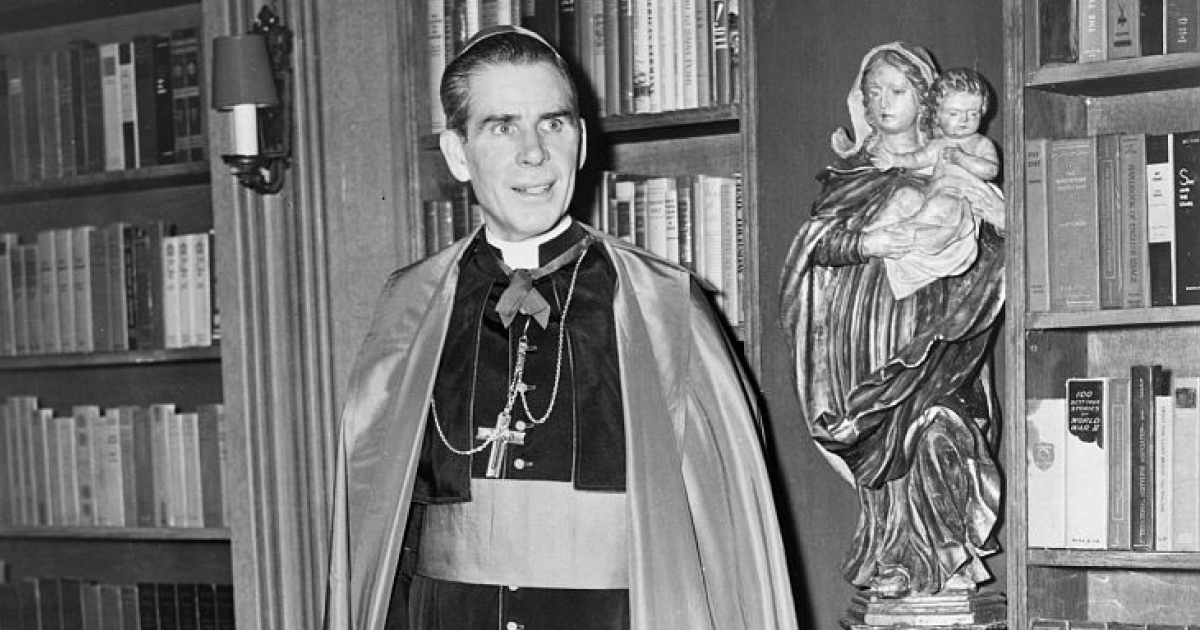Todd Field’s first film for sixteen years, Tár – starring Cate Blanchett as Lydia Tár, an American superstar composer-conductor – has divided audiences for reasons that slowly but subtly reveal themselves as the film progresses.
To begin with we see Tár in all her carefully constructed professional and intellectual glory. A protégée of Leonard Bernstein, she twinkles with the stardust of his endorsement and is an EGOT: her awards include an Emmy, a Grammy, an Oscar and a Tony. She’s tough, easy to dislike but apparently bulletproof.
Perpetually clad in beautifully-tailored power suits and expensive, exquisitely draped shirts, her blonde hair is imperiously swept back and she’s apparently make-up free. She looks more human than most female Hollywood stars of her age; a little bit tastefully done-in with a slight touch of mad-genius exhaustion.
At one point fairly early on Tár raises both arms from the podium – the camerawork makes it seem as if the music is somehow emanating from Tár herself. Hindsight reveals this as her peak moment. She’s a force of nature but also tragically Icarus-like. The music should be accompanied by the smell of burning, for subtly woven into the narrative of Tár’s astonishing success is her mentoring scholarship programme: the Accordion Foundation for aspiring women composers.
Rumours are beginning to seep out about Tár’s predatory conduct in this off-centre, unseen milieu but when one of her own protégées, Krista, commits suicide Tár’s public persona gradually starts to come apart at the seams. Slowly but inexorably it becomes clear that she is a sexual abuser. And because she’s a lesbian, her victims are women. Cue lots of shock and horror from the #MeToo movement.
The film could have depicted an equally predatory male in the lead but Field’s point is, I presume, that absolute power corrupts absolutely irrespective of gender. It can and will spring up anywhere where there is a hierarchy and it would be hard to think of a more hierarchical place than an orchestra with the conductor at its pinnacle.
The story cuts from scenes showing a professional Tár preparing for the crowning concert of her career to the domestic sphere. Her wife, Sophie (played by German Nina Hoss) – also, incidentally, first violinist with Tár’s orchestra – keeps the home fires burning. Her permanently pained expression sign-posts that all is not entirely well. A fractured and sinister soundtrack and Tár’s endless tormented dream sequences start to make it clear that storm clouds are massing on the horizon, somewhere.
We never quite discover what Tár is being accused of, which sustains the narrative tension. Her talented assistant and ex-paramour, Francesca (Noémie Merlant), is an emotional volcano who constantly oversteps professional boundaries in such a way that the viewer wonders what on earth is going on between them.
When Francesca is in a state about Krista’s suicide, Tár is first annoyed at the interruption to business – her ruthlessness on full display – then grudgingly comforts her. But when she discovers that Francesca has kept a series of emails from Krista, Tár throws her onto the scrapheap together with her ambition to be a conductor.
Tár becomes increasingly careless of other people and their feelings, apparently unaware of or wilfully blind to the seismic forces that are coalescing against her both in her personal and her professional life. Instead, revealingly, she develops a new tendresse for a young outsider: cellist Olga (played by real-life cellist Sophie Kauer).
Olga’s blistering début with Tár’s orchestra – channelling Jacqueline du Pré, she plays Elgar’s concerto for cello – appears to cement her position in Tár’s affections. The orchestra, however, exchange pointed glances throughout her performance. Tár ignores these signs of dissent and accelerates the pace of her own impending downfall.
This is a complex, disturbing film which lingers in the mind. Blanchett’s powerful portrayal of the eponymous Tár has already garnered the film heaps of awards and it will probably, deservedly, win her yet another Oscar.
(Photo credit: canburak | Flickr)
Todd Field’s first film for sixteen years, <em>Tár</em> – starring Cate Blanchett as Lydia Tár, an American superstar composer-conductor – has divided audiences for reasons that slowly but subtly reveal themselves as the film progresses.
To begin with we see Tár in all her carefully constructed professional and intellectual glory. A protégée of Leonard Bernstein, she twinkles with the stardust of his endorsement and is an EGOT: her awards include an Emmy, a Grammy, an Oscar and a Tony. She’s tough, easy to dislike but apparently bulletproof.
Perpetually clad in beautifully-tailored power suits and expensive, exquisitely draped shirts, her blonde hair is imperiously swept back and she’s apparently make-up free. She looks more human than most female Hollywood stars of her age; a little bit tastefully done-in with a slight touch of mad-genius exhaustion.
At one point fairly early on Tár raises both arms from the podium – the camerawork makes it seem as if the music is somehow emanating from Tár herself. Hindsight reveals this as her peak moment. She’s a force of nature but also tragically Icarus-like. The music should be accompanied by the smell of burning, for subtly woven into the narrative of Tár’s astonishing success is her mentoring scholarship programme: the Accordion Foundation for aspiring women composers.
Rumours are beginning to seep out about Tár’s predatory conduct in this off-centre, unseen milieu but when one of her own protégées, Krista, commits suicide Tár’s public persona gradually starts to come apart at the seams. Slowly but inexorably it becomes clear that she is a sexual abuser. And because she’s a lesbian, her victims are women. Cue lots of shock and horror from the #MeToo movement.
The film could have depicted an equally predatory male in the lead but Field’s point is, I presume, that absolute power corrupts absolutely irrespective of gender. It can and will spring up anywhere where there is a hierarchy and it would be hard to think of a more hierarchical place than an orchestra with the conductor at its pinnacle.
The story cuts from scenes showing a professional Tár preparing for the crowning concert of her career to the domestic sphere. Her wife, Sophie (played by German Nina Hoss) – also, incidentally, first violinist with Tár’s orchestra – keeps the home fires burning. Her permanently pained expression sign-posts that all is not entirely well. A fractured and sinister soundtrack and Tár’s endless tormented dream sequences start to make it clear that storm clouds are massing on the horizon, somewhere.
We never quite discover what Tár is being accused of, which sustains the narrative tension. Her talented assistant and ex-paramour, Francesca (Noémie Merlant), is an emotional volcano who constantly oversteps professional boundaries in such a way that the viewer wonders what on earth is going on between them.
When Francesca is in a state about Krista’s suicide, Tár is first annoyed at the interruption to business – her ruthlessness on full display – then grudgingly comforts her. But when she discovers that Francesca has kept a series of emails from Krista, Tár throws her onto the scrapheap together with her ambition to be a conductor.
Tár becomes increasingly careless of other people and their feelings, apparently unaware of or wilfully blind to the seismic forces that are coalescing against her both in her personal and her professional life. Instead, revealingly, she develops a new <em>tendresse</em> for a young outsider: cellist Olga (played by real-life cellist Sophie Kauer).
Olga’s blistering <em>début</em> with Tár’s orchestra – channelling Jacqueline du Pré, she plays Elgar’s concerto for cello – appears to cement her position in Tár’s affections. The orchestra, however, exchange pointed glances throughout her performance. Tár ignores these signs of dissent and accelerates the pace of her own impending downfall.
This is a complex, disturbing film which lingers in the mind. Blanchett’s powerful portrayal of the eponymous Tár has already garnered the film heaps of awards and it will probably, deservedly, win her yet another Oscar.
<em>(Photo credit: canburak | Flickr)</em>


















